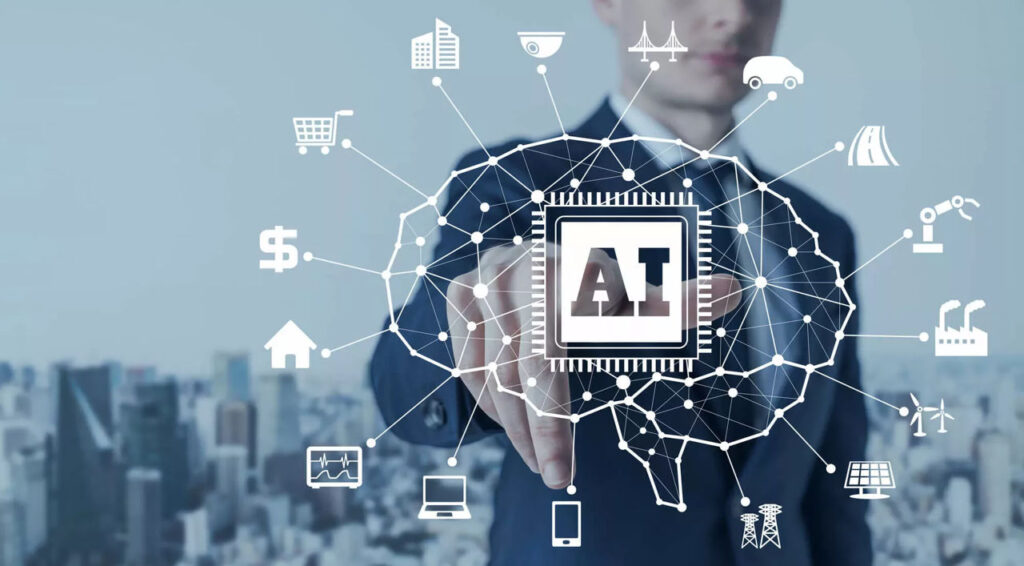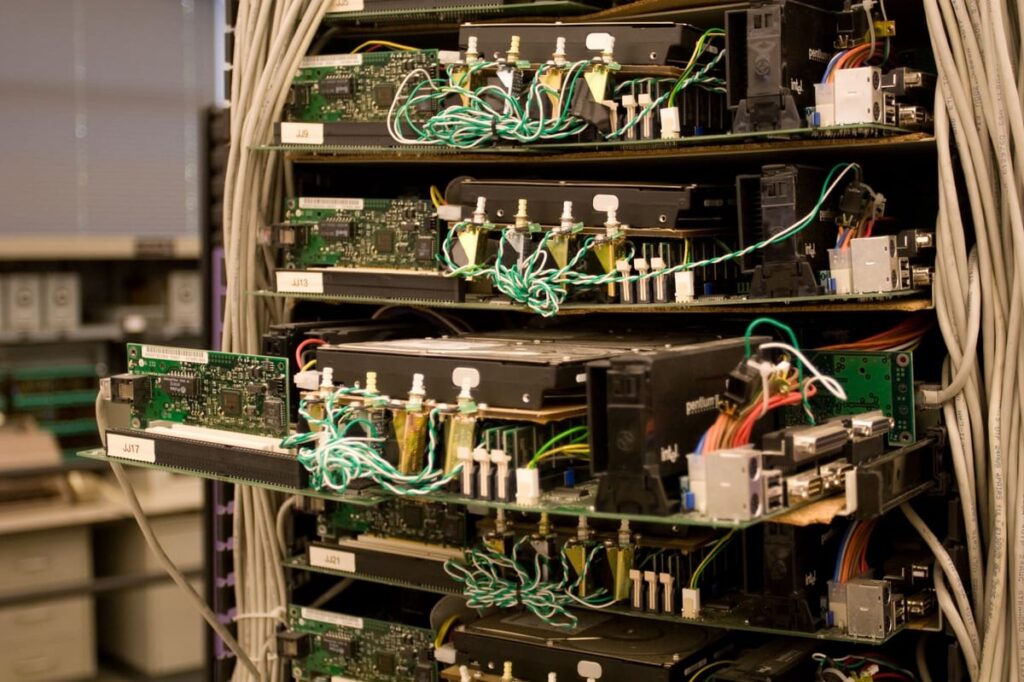The United Arab Emirates (UAE) has long been a global beacon of innovation, and in 2025, its embrace of artificial intelligence (AI) is reshaping industries, economies, and daily life. From smart cities to healthcare, education, and entrepreneurship, the UAE’s AI revolution is a testament to its forward-thinking vision, positioning the nation as a global leader in technology. This article explores how AI is transforming the UAE in 2025, backed by strategic initiatives, groundbreaking partnerships, and a commitment to sustainable development.
The UAE’s Strategic AI Vision
The UAE’s journey to becoming an AI powerhouse began with the launch of the UAE Strategy for Artificial Intelligence 2031, a roadmap to integrate AI across sectors like education, healthcare, transportation, and governance. By 2025, this strategy has matured, with the UAE government prioritizing AI as a cornerstone of its economic diversification and digital transformation. The appointment of the world’s first Minister of Artificial Intelligence in 2017 set the tone, and today, the UAE’s AI ecosystem is thriving, supported by initiatives like the Dubai Future Foundation and the Abu Dhabi-based Technology Innovation Institute (TII).
In 2025, the UAE is leveraging AI to achieve its ambitious Vision 2031 goals, aiming to become one of the top five AI-driven economies globally. The government’s investment in AI infrastructure, including data centers and cloud computing, has created a robust foundation for innovation. Events like GITEX Global 2025, held in Dubai, showcase the UAE’s advancements, attracting global tech leaders and startups to collaborate on AI-driven solutions.
AI in Entrepreneurship: The Dubai AI Playbook
One of the most significant developments in 2025 is the launch of The Entrepreneur’s AI Playbook by the Dubai Chamber of Digital Economy. This practical guide equips entrepreneurs with AI tools to build, grow, and scale businesses efficiently. The playbook, part of the Create Apps in Dubai initiative, aligns with Sheikh Hamdan bin Mohammed bin Rashid Al Maktoum’s vision to triple app developers, train 1,000 UAE nationals, and launch 100 homegrown apps.
The playbook offers actionable strategies, including AI-driven branding, value proposition creation, and business model optimization. For instance, entrepreneurs can use AI to generate memorable brand names, design compelling visuals, and craft targeted marketing campaigns on tight budgets. It also provides guidance on automating billing, logistics, and customer support, enabling startups to operate leanly while delivering world-class experiences. This initiative has empowered thousands of UAE-based startups, fostering a vibrant tech ecosystem and reinforcing Dubai’s status as a global hub for innovation.
Quantum Leap Forward: TII and Quantinuum Partnership
The UAE is not only advancing classical AI but also pioneering quantum computing through the Technology Innovation Institute’s partnership with Quantinuum, announced in August 2025. This strategic collaboration grants TII access to Quantinuum’s high-fidelity quantum systems, including the upcoming Helios platform, to advance research in materials science, data encoding, and optimization. By integrating quantum computing with AI, TII is tackling complex challenges, such as simulating superconductors and solving combinatorial optimization problems with fewer qubits.
This partnership is a game-changer for the UAE’s tech landscape, positioning it as a global leader in quantum technology. It also emphasizes workforce development, training the next generation of quantum algorithm developers to ensure the UAE remains at the forefront of innovation. Dr. Leandro Aolita, Chief Researcher at TII’s Quantum Research Center, noted that this collaboration solidifies the UAE’s status as a technology hub, with far-reaching implications for industries like healthcare, logistics, and energy.
AI-Powered Smart Cities and Transportation
Dubai’s ambition to become the world’s smartest city is coming to fruition in 2025, with AI at the heart of urban development. Smart city initiatives, powered by 5G and IoT, use AI to optimize traffic management, energy consumption, and public safety. The Roads and Transport Authority (RTA) has deployed AI-driven systems to reduce traffic congestion, with predictive analytics improving commuting times by up to 15% in Dubai. Autonomous vehicles, tested extensively in 2024, are now a common sight, with AI ensuring safer and more efficient transportation.
Abu Dhabi’s joint venture between Adnoc and Taqa aims to install 70,000 electric vehicle (EV) chargers by 2030, supported by AI systems that optimize charging schedules based on demand and grid capacity. These advancements align with the UAE’s sustainability goals, reducing carbon emissions while enhancing urban mobility.
Healthcare Transformation Through AI
AI is revolutionizing healthcare in the UAE, with 2025 marking significant milestones in HealthTech. AI-powered diagnostic tools, developed through partnerships between UAE hospitals and global tech firms, enable faster and more accurate disease detection. For instance, AI algorithms analyze medical imaging to detect early signs of cancer, reducing diagnosis times by 30%. The UAE’s Ministry of Health and Prevention has also integrated AI into telemedicine platforms, expanding access to healthcare in remote areas.
Additionally, AI-driven wearable devices monitor patients’ vital signs in real-time, enabling proactive interventions. These innovations have improved patient outcomes and reduced healthcare costs, aligning with the UAE’s goal of ensuring healthy lives under SDG 3. The UAE’s investment in AI-driven healthcare research, particularly through TII, is also advancing personalized medicine, tailoring treatments to individual genetic profiles.
Education and Workforce Development
AI is transforming education in the UAE, preparing the next generation for a tech-driven future. In 2025, AI-powered platforms personalize learning experiences, adapting curricula to students’ needs and learning paces. The UAE’s new school calendar, announced in 2025, incorporates AI training programs to equip students with digital skills. Universities like Khalifa University are using AI to enhance research, from climate modeling to renewable energy solutions.
Workforce development is another focus, with initiatives like the Mohammed bin Zayed University of Artificial Intelligence (MBZUAI) training thousands of AI specialists. The TII-Quantinuum partnership also emphasizes upskilling, ensuring UAE nationals are equipped to lead in quantum and AI technologies. These efforts are creating a highly skilled workforce, driving economic growth and innovation.
Sustainability and AI: A Greener Future
The UAE’s commitment to sustainability is amplified by AI in 2025. The 2045 SDG Report, launched at the UN High-Level Political Forum, highlights AI’s role in achieving sustainable development goals. AI-driven analytics optimize resource use in agriculture, reducing water consumption by 20% in smart farming initiatives. Circular economy models, supported by AI, are also gaining traction, with businesses using predictive maintenance to extend product lifecycles.
The report emphasizes AI’s potential to surpass traditional policies in driving sustainable outcomes, with 64.9% of global survey respondents supporting this view. By embedding AI into policymaking, the UAE is future-proofing its economy while addressing climate challenges, aligning with its goal of having 50% of vehicles electric by 2050.
Challenges and the Road Ahead
Despite its progress, the UAE faces challenges in scaling AI adoption. High costs of AI infrastructure and a shortage of specialized talent remain hurdles, though initiatives like MBZUAI and the AI Playbook are addressing these gaps. Data privacy and ethical AI use are also critical, with the UAE implementing stringent regulations to ensure transparency and accountability.
Looking ahead, the UAE’s AI revolution shows no signs of slowing. With ongoing investments, global partnerships, and a culture of innovation, the nation is poised to redefine industries and enhance quality of life. By 2031, the UAE aims to generate 30% of its GDP through AI-driven technologies, a target that seems increasingly achievable in 2025.
Conclusion
The AI app development in the UAE is a story of ambition, innovation, and strategic foresight. From empowering entrepreneurs with The Entrepreneur’s AI Playbook to pioneering quantum computing with TII, the UAE is leveraging AI to shape a future that is sustainable, inclusive, and technologically advanced. As 2025 unfolds, the UAE’s AI-driven transformation is not just reshaping its own landscape but setting a global benchmark for what’s possible when vision meets technology. The world is watching, and the UAE is leading the way.



